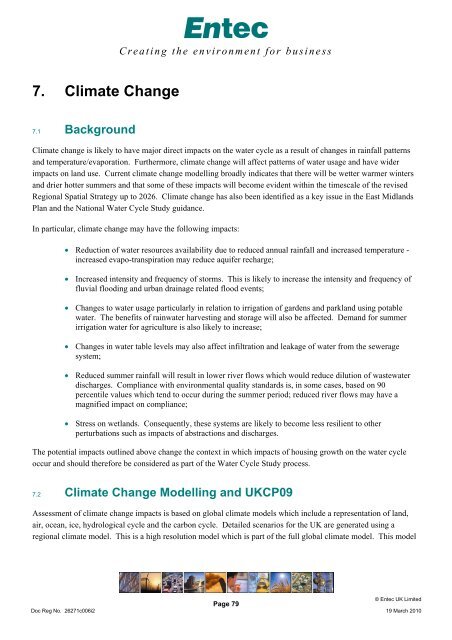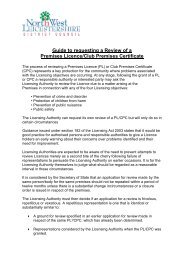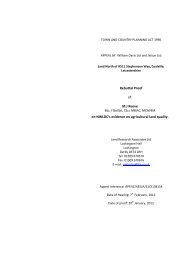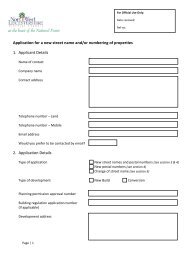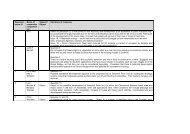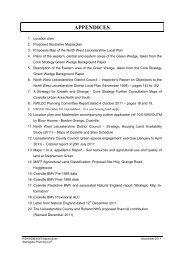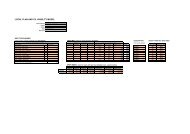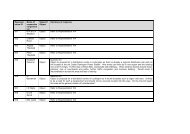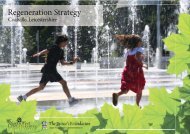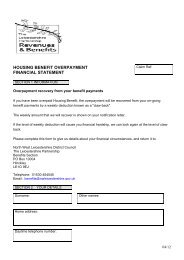Water Cycle Study - March 2010 - North West Leicestershire District ...
Water Cycle Study - March 2010 - North West Leicestershire District ...
Water Cycle Study - March 2010 - North West Leicestershire District ...
Create successful ePaper yourself
Turn your PDF publications into a flip-book with our unique Google optimized e-Paper software.
Creating the environment for business<br />
7. Climate Change<br />
7.1 Background<br />
Climate change is likely to have major direct impacts on the water cycle as a result of changes in rainfall patterns<br />
and temperature/evaporation. Furthermore, climate change will affect patterns of water usage and have wider<br />
impacts on land use. Current climate change modelling broadly indicates that there will be wetter warmer winters<br />
and drier hotter summers and that some of these impacts will become evident within the timescale of the revised<br />
Regional Spatial Strategy up to 2026. Climate change has also been identified as a key issue in the East Midlands<br />
Plan and the National <strong>Water</strong> <strong>Cycle</strong> <strong>Study</strong> guidance.<br />
In particular, climate change may have the following impacts:<br />
• Reduction of water resources availability due to reduced annual rainfall and increased temperature -<br />
increased evapo-transpiration may reduce aquifer recharge;<br />
• Increased intensity and frequency of storms. This is likely to increase the intensity and frequency of<br />
fluvial flooding and urban drainage related flood events;<br />
• Changes to water usage particularly in relation to irrigation of gardens and parkland using potable<br />
water. The benefits of rainwater harvesting and storage will also be affected. Demand for summer<br />
irrigation water for agriculture is also likely to increase;<br />
• Changes in water table levels may also affect infiltration and leakage of water from the sewerage<br />
system;<br />
• Reduced summer rainfall will result in lower river flows which would reduce dilution of wastewater<br />
discharges. Compliance with environmental quality standards is, in some cases, based on 90<br />
percentile values which tend to occur during the summer period; reduced river flows may have a<br />
magnified impact on compliance;<br />
• Stress on wetlands. Consequently, these systems are likely to become less resilient to other<br />
perturbations such as impacts of abstractions and discharges.<br />
The potential impacts outlined above change the context in which impacts of housing growth on the water cycle<br />
occur and should therefore be considered as part of the <strong>Water</strong> <strong>Cycle</strong> <strong>Study</strong> process.<br />
7.2 Climate Change Modelling and UKCP09<br />
Assessment of climate change impacts is based on global climate models which include a representation of land,<br />
air, ocean, ice, hydrological cycle and the carbon cycle. Detailed scenarios for the UK are generated using a<br />
regional climate model. This is a high resolution model which is part of the full global climate model. This model<br />
Doc Reg No. 26271c006i2<br />
Page 79<br />
© Entec UK Limited<br />
19 <strong>March</strong> <strong>2010</strong>


